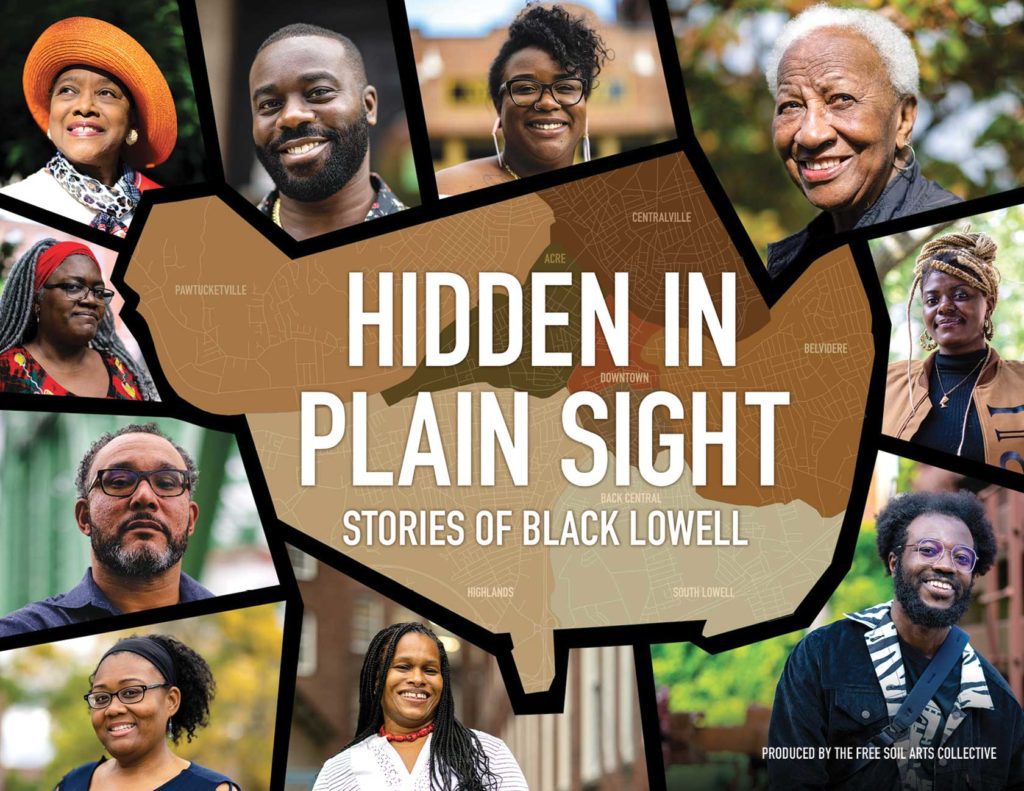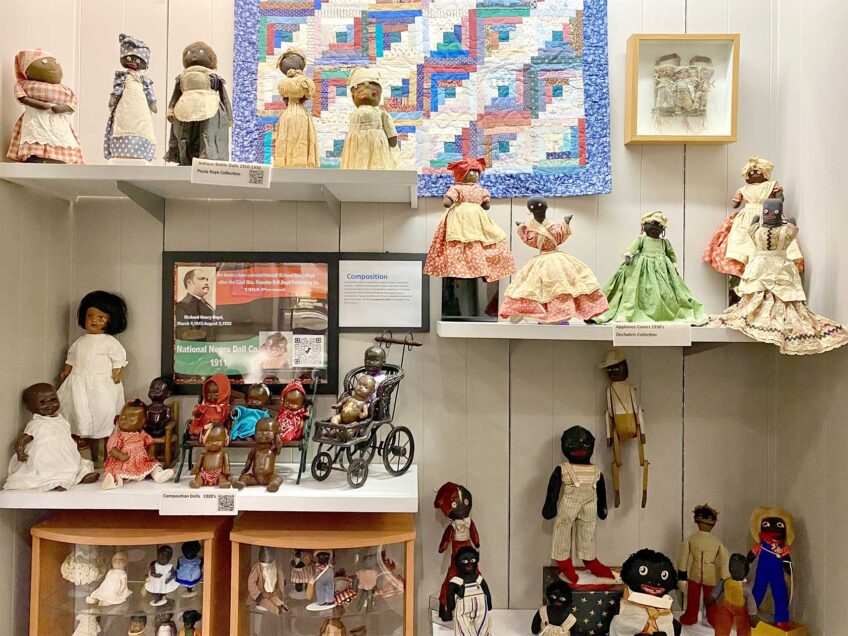Hidden no more: New book from Free Soil Arts Collective tells Lowell’s Black stories

Free Soil Arts Collective has debuted a book of interviews with Black residents of Lowell. “Hidden in Plain Sight: Stories of Black Lowell,” published Dec. 13, delves into the history of the city that’s often left behind in archives and dialogues. Using interviews with current Lowell residents, the book weaves together a transcribed oral history of the diverse city.
“Hidden in Plain Sight” debuts in tandem with an exhibit at the Lowell National Historic Park Visitor Center, titled “Destruction + Resilience.” The exhibit adds a much-needed dose of Black history to the more common Lowell factory narratives. The exhibit focuses on historically Black neighborhoods where gentrification has forced families out and the Black community has found the strength to rebuild.
“It’s given people a richer sense of what Lowell is about,” says Christa Brown, founder of Free Soil Arts Collective. “The visitor center is sometimes the first place that visitors go when they want to explore this place, and now when you go, you’re learning about the mill girls, you’re learning about the immigrant experience — and you’re also learning about Black people.”
Beginning in 2020 with the help of a Regional Equity Grant from Greater Lowell Community Foundation, Brown and the Free Soil team interviewed 27 residents, all of whose stories are included in the book. Brown says she was blown away by how many historical milestones were nestled in the personal histories of these community members. Enid Rocha was Lowell’s first Black female teacher, and the Chapman family was one of the first Black families to move into the Centerville neighborhood.
The conversations centered on each resident’s personal experience but also touched on Black history and the preservation thereof in the city.
Brown hopes that this will be the first of many changes to the visibility of Lowell’s Black history. “We have over 30 stops on the Underground Railroad here that are not permanently marked,” she says. “Part of this work has allowed us to talk to the city council about ways we can make that history permanent. We have to speak up. If we don’t, it’s going to be as if these things never happened.”
The hours of audio from the Soil Arts team’s interviews will likely contribute to furthering the Black history archive in the city. Brown is investigating adding a soundscape to the National Historic Park exhibit and preserving that oral history in other ways as well.
“Hidden in Plain Sight” can be purchased online from the Free Soil website, with local delivery available for Lowell residents, as well as at El Taller bookstore in Lawrence and at Lala books in Lowell. The proceeds go back to the Free Soil Arts Collective to support its ongoing efforts to tell diverse stories in Lowell.
“I hope this brings a greater awareness of the contributions Black people have made here for generations,” says Brown. “I hope it further pushes the need for us to have permanent signage marking the Black history here, and I hope it inspires other communities that might look like Lowell.”




![Banner [Virtual] Art Gallery](https://baystatebanner.com/wp-content/uploads/2024/04/Cagen-Luse_Men-at-store-e1713991226112-150x150.jpg)

![Banner [Virtual] Art Gallery](https://baystatebanner.com/wp-content/uploads/2024/04/Cagen-Luse_Men-at-store-e1713991226112-848x569.jpg)

